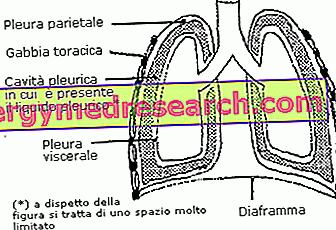ASCRIPTIN ® is a drug based on acetylsalicylic acid + magnesium and aluminum hydroxide
THERAPEUTIC GROUP: Non-steroidal anti-inflammatory and antirheumatic drugs
IndicationsAction mechanismStudies and clinical effectiveness Usage and dosage instructionsWarnings Pregnancy and lactationInteractionsContraindicationsUndesirable effects
Indications ASCRIPTIN ® Acetylsalicylic acid
ASCRIPTIN ® is indicated in the treatment of both cardiovascular diseases associated with an increased thrombotic risk and painful states on an inflammatory basis for different organs and systems.
In pediatric patients ASCRIPTIN ® should only be used for the anti-inflammatory treatment of rheumatic diseases.
Mechanism of action ASCRIPTIN ® Acetylsalicylic acid
ASCRIPTIN ® is a drug based on acetylsalicylic acid, an active ingredient belonging to the family of non-steroidal anti-inflammatory drugs and chemically derived from salicylic acid, from which it is distinguished by the presence of an acetyl group in the second position.
This small structural variation is responsible for the different efficacy and safety of the molecule, significantly reducing its acidic and irritative characteristics while preserving its therapeutic characteristics.
The action of acetylsalicylic acid is due to the ability to acetylate some amino acids present in the active sites of cyclooxygenases, reducing the biological activity of these enzymes, useful for the conversion of arachidonic acid into prostaglandins, chemical mediators involved in the genesis of inflammation and inflammation.
Although this represents the main biological and therapeutic activity, for which acetyl salicylic acid is used, it is useful to remember that the low-dose ASA may be selective at the platelet level, where it is able to irreversibly inhibit the enzyme thromboxane synthetase, responsible for the synthesis of thromboxane A2, a powerful molecule with a vasoconstrictor and platelet aggregating action.
From the pharmacokinetic point of view instead, the intestinal absorption of the acetylsalicylic acid present in ASCRIPTIN ® is facilitated by the simultaneous presence of magnesium hydroxide and aluminum hydroxide, able to buffer the acidity typical of ASA, while protecting the gastro-mucosa duodenal from possible lesions and irritations.
Once absorbed and metabolized by hepatic esterases in salicylate, bound to plasma proteins, it is distributed in the body where it performs its therapeutic action.
Only after a dose-dependent half-life, salicylic acid is glucoronated at the hepatic level and eliminated mainly through the urine.
Studies carried out and clinical efficacy
1. THE DESENSITIZATION TO SALICILATES
Int J Cardiol. 2012 Feb 24.
Work demonstrating the effectiveness of desensitization protocols, in cases where the administration of aspirin becomes necessary for prophylactic purposes in patients suffering from hypersensitivity to salicylates
2. INNOVATIVE PROTOCOLS: Aspirin in the treatment of bipolar depression
BMJ Open. 2012 Feb 22; 2 (1): e000643. Print 2012.
Very interesting clinical trial that demonstrates how the contextual use of some antibiotics and aspirin can be useful in the treatment of bipolar disorders. At the base of this innovative therapy there are several biological evidences that demonstrate the numerous neuronal damages induced by inflammatory processes of various magnitudes.
3. THE MANAGEMENT OF MUCOSAL DAMAGE Induced by NSAIDs
Curr Med Chem. 2012; 19 (1): 82-9.
Work that seeks to best characterize the potential protective strategies against gastric mucosa, which can be combined together with acetylsalicylic acid therapy without changing its therapeutic efficacy.
Method of use and dosage
ASCRIPTIN ®
Tablets of 300 mg of acetylsalicylic acid, 80 mg of magnesium hydroxide and 70 mg of aluminum hydroxide.
As previously stated, the dose of acetylsalicylic acid significantly influences the therapeutic activity performed by the medicinal product, therefore it is recommended to take:
- ½ or 1 tablet a day as a single administration as a platelet aggregation inhibitor;
- 1-2 tablets 2-3 times a day as an anti-inflammatory, pain reliever.
In any case, in order to minimize the side effects of this medicine, it is advised, again according to medical indications, to take ASCRIPTIN ® after meals at the lowest effective dosages.
Warnings ASCRIPTIN ® Acetylsalicylic acid
In order to limit the damage to the gastro-duodenal mucosa it would be useful to start therapy with ASCRIPTIN ® at the lowest possible dose, taking the drug preferably on a full stomach.
Particular caution should be reserved for patients suffering from coagulative diathesis, gastro-intestinal, allergic and cardiovascular diseases, given the high susceptibility of these patients to the side effects of acetylsalicylic acid.
An adjustment of the dose used should be expected in elderly patients.
ASCRIPTIN ® contains lactose therefore we do not recommend taking it in patients with lactase enzyme deficiency, glucose-galactose malabsorption syndrome or galactose intolerance.
PREGNANCY AND BREASTFEEDING
The indications regarding the safety profile of acetylsalicylic acid, when taken during pregnancy, for fetal health, vary significantly according to the dose used.
More precisely, while the doses below 100 mg seem safe and free from fetal side effects, those higher at this cut-off value, significantly inhibiting the production of prostaglandins, could compromise the normal cell differentiation and proliferation process present in the embryo before and in the fetus then, facilitating the appearance of malformations especially in the cardiovascular and respiratory system.
It is therefore possible to conclude that the use of acetylsalicylic acid, at doses higher than 100 mg per day, is contraindicated during pregnancy.
Interactions
The therapeutic activity and the safety profile of acetylsalicylic acid could be disturbed by the concomitant administration of other active ingredients.
For this reason it would be very important to pay particular attention to the simultaneous intake of acetylsalicylic acid and:
- Oral anticoagulants and inhibitors of serotonin reuptake, responsible for the increased risk of bleeding;
- Diuretics, ACE inhibitors, angiotensin II antagonists, methotrexate and cyclosporin, due to increased hepatotoxic and nephrotoxic effects of acetylsalicylic acid;
- Non-steroidal anti-inflammatory drugs and corticosteroids, given the increased risk of histological damage to the gastro-intestinal mucosa;
- Antibiotics, responsible for pharmacokinetic alterations and related therapeutic efficacy;
- Sulfonylureas, for disorders affecting glucose metabolism, given the potential hypoglycemic effect induced by NSAIDs.
Contraindications ASCRIPTIN ® Acetylsalicylic acid
The intake of ASCRIPTIN ® is contraindicated in case of hypersensitivity to the active ingredient or to one of its excipients, angioedema, peptic ulcer, history of intestinal bleeding, ulcerative colitis, Crohn's disease or previous history for the same diseases, cerebrovascular bleeding, bleeding diathesis or concomitant anticoagulant therapy, renal failure, liver failure and ongoing viral infections.
Undesirable effects - Side effects
The intake of ASCRIPTIN ®, as well as that of any medicine containing acetylsalicylic acid, could be associated with the appearance of different side effects, the incidence and severity of which is generally dose-dependent.
The organs and apparatuses more interested are those:
- Gastrointestinal, subjected to the direct and indirect irritation of ASA that manifests itself with burning, gastralgia, nausea and vomiting, constipation and in more serious cases ulcers and hemorrhages;
- Hematic, in which a significant lengthening of the bleeding time is observed, only rarely associated also with pancytopenia;
- Urinary, characterized by a progressive deterioration of renal function;
- Dermatology affected by erythema nodosum, rash, dermatitis and bullous reactions in the most serious cases;
- Sensory affected by hearing loss and ophthalmopathies;
- Metabolic, with alterations mainly due to carbohydrate metabolism;
- Central nervous system with headache, insomnia, drowsiness, confusion and tremors;
- Cardiovascular associated with an increased risk of cerebro and cardiovascular events.
Note
ASCRIPTIN ® is salable only with a medical prescription.



